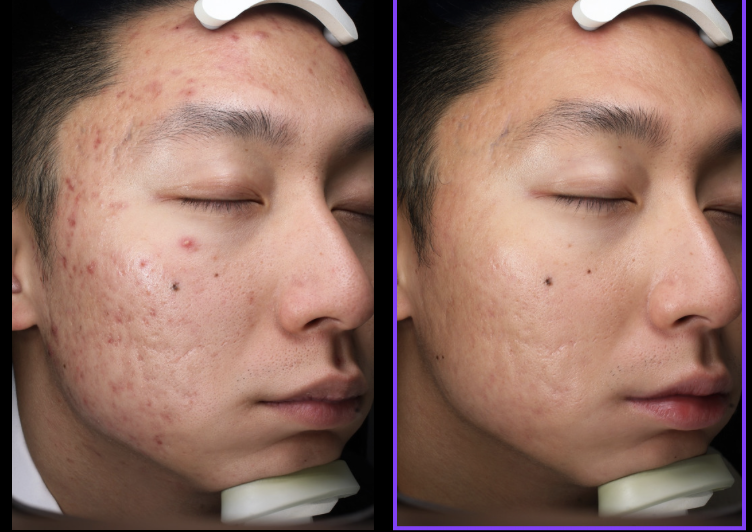Exploring the Role of Dermatologists in Diagnosing and Treating Diverse Skin Conditions With Accuracy
From usual issues like acne and dermatitis to more complicated problems such as melanoma or uncommon genetic skin conditions, skin doctors are at the forefront of identifying and dealing with these conditions with accuracy. Past the surface of skin problems exist interconnected factors that influence medical diagnosis and treatment end results.
Importance of Early Discovery
Very early detection of skin problems plays an essential duty in the effective treatment and administration by skin doctors. Timely identification of skin problems permits for prompt intervention, which can stop the development of problems and reduce prospective difficulties. Dermatologists depend on their proficiency to acknowledge refined adjustments in the skin that might indicate underlying problems, such as skin cancer, psoriasis, eczema, or dermatitis. By carrying out thorough examinations and utilizing diagnostic tools like biopsies or dermoscopy, skin specialists can precisely identify a variety of skin disease.
Moreover, very early discovery allows skin specialists to customize therapy plans to the specific demands of each person. For circumstances, identifying skin cancer in its early stages dramatically enhances the prognosis and increases the chance of effective treatment end results. By intervening early, skin specialists can also assist ease signs, protect against getting worse of the condition, and improve the total top quality of life for their clients. Therefore, stressing the significance of very early detection emphasizes the vital duty that dermatologists play in promoting skin wellness and well-being.
Advanced Diagnostic Strategies
Utilizing advanced innovation and customized knowledge, skin specialists employ sophisticated diagnostic strategies to precisely determine and evaluate various skin problems. By multiplying the skin, dermoscopy help in the early detection of melanoma, basic cell cancer, and other skin cancers.
Moreover, molecular screening has changed the medical diagnosis and treatment of skin conditions by making it possible for skin specialists to analyze hereditary mutations related to problems such as melanoma and hereditary dermatoses. With techniques like polymerase domino effect (PCR) and next-generation sequencing (NGS), skin specialists can give personalized therapy plans based upon a client's details genetic account. These sophisticated analysis tools boost the precision and efficiency of dermatological treatment, ultimately causing much better outcomes for clients.

Tailored Therapy Approaches
With a comprehensive understanding of skin problem achieved through innovative diagnostic methods, skin specialists tailor treatment approaches to address specific person requires effectively. This customized approach is crucial in ensuring optimum results for clients with diverse skin problems. By thinking about elements such as skin type, case history, lifestyle behaviors, and therapy preferences, skin doctors can create treatment plans that are especially tailored per individual.
Tailored treatment approaches may entail a mix of therapies such as topical medications, dental medicines, minimally invasive treatments, or lifestyle alterations. For example, clients with acne might benefit from a routine that includes topical retinoids, dental antibiotics, and in-office treatments like chemical peels or laser treatment. On the other hand, individuals with dermatitis may call for a treatment strategy concentrated on mild skincare regimens, moisturizers, topical corticosteroids, and recognizing and avoiding triggers that aggravate their condition.

Handling Chronic Skin Disease
Skin specialists play an important role in creating long-lasting management strategies for persistent skin disease, making certain efficient care and enhanced quality of visit life for people - Chromaderm Melbourne. Managing chronic skin disease requires a detailed method that exceeds just dealing with symptoms. Skin specialists are educated to not only detect these conditions precisely but likewise to create individualized treatment plans that resolve the underlying factors and causes adding to the skin disease's perseverance
In managing chronic skin problems, dermatologists commonly employ a combination of therapy methods tailored to every person's specific requirements. This might include topical medications, dental drugs, lifestyle adjustments, and step-by-step treatments such as laser therapy or phototherapy. Routine follow-up appointments are vital to check the problem's progress, change therapy as needed, and provide ongoing assistance and education and learning to clients.
In addition, dermatologists play an essential duty in encouraging clients to take an energetic function in managing their skin problem. By educating individuals about their condition, treatment choices, and safety nets, skin specialists help individuals make educated choices and grow healthy and balanced skin practices that add to long-lasting skin wellness and general wellness.
Collaborative Treatment Methods
In the alternative management of skin disease, collaborative treatment approaches entailing different health care professionals are important for optimizing patient end results. Skin doctors usually function in multidisciplinary teams to offer comprehensive treatment that addresses the diverse demands of people with skin problem. By working together with health care doctors, allergists, plastic surgeons, and various other experts, skin doctors can make certain that clients receive incorporated and coordinated treatment tailored to their specific problem.
Collaborative care strategies additionally encompass patient education and learning and support. Skin specialists can work very closely with psycho therapists, registered nurses, and pharmacologists to find educate people concerning their skin condition, therapy alternatives, and precautionary actions. This interdisciplinary method encourages patients to actively take part in their care and make notified choices concerning their health.
Moreover, joint care enables for an extra all natural assessment of clients, thinking about not only the physical symptoms of their skin condition yet additionally the psychological and social impact it might have. By considering the broader ramifications of skin problem, medical care professionals can establish a lot more personalized therapy plans that resolve the distinct requirements of each patient. Eventually, collaborative care strategies play a her explanation critical role in supplying high-grade, patient-centered take care of individuals with varied skin disease.
Conclusion
Finally, skin specialists play a vital function in identifying and dealing with a wide variety of skin problem with accuracy. Via very early discovery and advanced diagnostic techniques, they are able to provide customized therapy techniques for ideal results. By managing chronic skin problem and applying joint treatment methods, dermatologists ensure reliable and detailed take care of their patients. Their know-how and commitment add substantially to the general health and health of people with varied skin concerns.
Dermatologists depend on their competence to recognize subtle changes in the skin that might indicate underlying issues, such as skin cancer, eczema, dermatitis, or psoriasis. By multiplying the skin, dermoscopy aids in the very early discovery of melanoma, basic cell cancer, and other skin cancers cells.With an extensive understanding of skin problems achieved with innovative diagnostic methods, dermatologists customize treatment techniques to resolve individual client requires effectively. Skin specialists are educated to not just diagnose these problems accurately however additionally to develop individualized therapy strategies that address the underlying causes and aspects adding to the skin problem's determination.
In taking care of persistent skin problems, dermatologists typically utilize a combination of treatment techniques tailored to each individual's details demands.